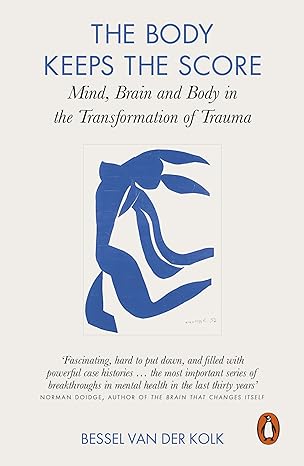More on this book
Community
Kindle Notes & Highlights
Angry people live in angry bodies.
Until it lost its patent, the pharmaceutical company Johnson & Johnson doled out LEGO blocks stamped with the word “Risperdal” for the waiting rooms of child psychiatrists. Children from low-income families are four times as likely as the privately insured to receive antipsychotic medicines.
Trauma causes people to remain stuck in interpreting the present in light of an unchanging past. The scene you re-create in a structure may or may not be precisely what happened, but it represents the structure of your inner world: your internal map and the hidden rules that you have been living by.
This period of experimentation and huge optimism about the potential of the human mind came to an end in the middle 1970s with newly discovered psychiatric drugs. Psychiatry and brain science adopted a chemical model of mind and brain, and other treatment approaches were relegated to the back burner.
When I give presentations on trauma and trauma treatment, participants sometimes ask me to leave out the politics and confine myself to talking about neuroscience and therapy. I wish I could separate trauma from politics, but as long as we continue to live in denial and treat only trauma while ignoring its origins, we are bound to fail. In today’s world your ZIP code, even more than your genetic code, determines whether you will lead a safe and healthy life. People’s income, family structure, housing, employment, and educational opportunities affect not only their risk of developing traumatic
...more
As we’ve seen, my own profession often compounds, rather than alleviates, the problem. Many psychiatrists today work in assembly-line offices where they see patients they hardly know for fifteen minutes and then dole out pills to relieve pain, anxiety, or depression. Their message seems to be “Leave it to us to fix you; just be compliant and take these drugs and come back in three months—but be sure not to use alcohol or (illegal) drugs to relieve your problems.” Such shortcuts in treatment make it impossible to develop self-care and self-leadership. One tragic example of this orientation is
...more


